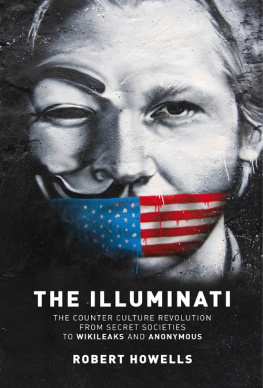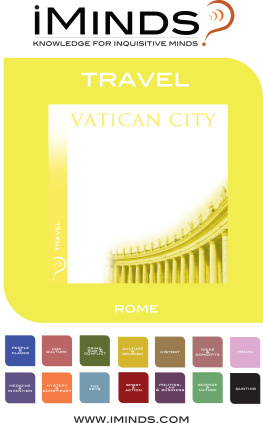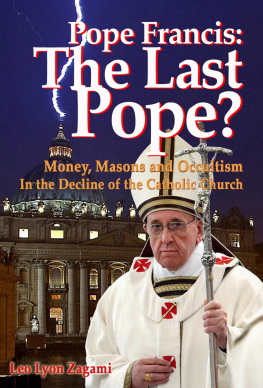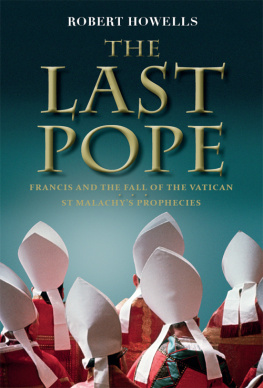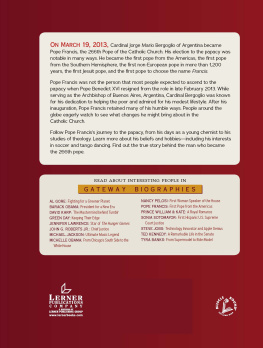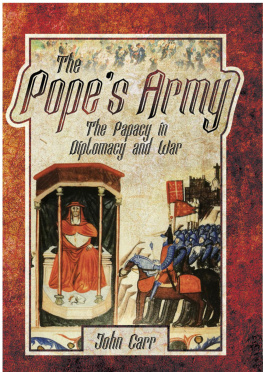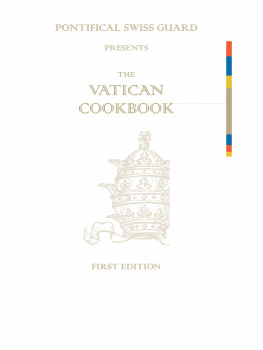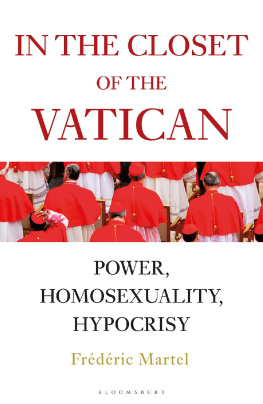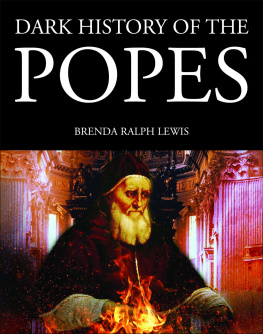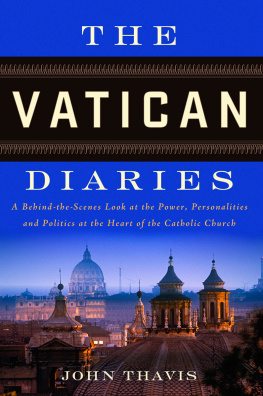ROBERT HOWELLS


ACKNOWLEDGEMENTS
My agent Susan Mears, Michael Mann and Deborah Hercun and the staff at Watkins Publishing, Norma and Bruce Burgess for their ongoing support, the staff of Watkins Bookshop in London, the British Library and the Vatican Library and archives.
INTRODUCTION
F or over two decades my research has woven in and out of prophecy and in my previous book, entitled Inside the Priory of Sion (Watkins Publishing, 2011), I delved deeply into the prophecies of the apocalypse from biblical texts and other sources. My investigations also included prophecies derived from witnesses of Virgin Mary apparitions and from the saints who had recorded visions of the End Times, some of which you will encounter in the pages before you.
As part of that research I read the Prophecy of the Popes as attributed to the 12th-century monk St Malachy, and found there were many interesting facets of his story that were far beyond the scope of my first book.
PROPHECY
We think of prophecy as a revealing of information that can include warnings or spiritual insights from a time gone by, where it was once held as a conduit to divine revelation. In the Old Testament the will of God was revealed to the prophets through communication with the Holy Spirit. The prophets were revered and the wisdom they imparted considered of the highest authority.
In recent times prophecy has fallen out of favour within the Catholic Church. Respect is still given to the biblical prophets such as Isaiah and St John of Patmos, to whom is attributed the Book of Revelation, but since biblical times the Catholic Church has refused to condone any further prophetic revelation as being credible, regardless of if it were from a saint, pope or seer. Christianity was built upon the Messiah, whose coming was prophesised in the Old Testament in the books of Daniel and Isaiah, but this foundation has not been built upon since antiquity.
For the last two millennia prophets have continued to add to the great body of prophetic work, intent on revealing our possible futures. Hildegard von Bingen, Nostradamus, many saints and even some of the popes were compelled to share their visions. Among these stands St Malachy of Armagh, a devout Catholic who helped to reform Ireland during the dark days of the 12th century.
St Malachy of Armagh was the first saint to be born in Ireland and is considered a leading reformer who overcame many challenges to bring the Irish Church in line with Rome. His life and work were recorded by his contemporary and friend, St Bernard of Clairvaux, who considered Malachy to be on a par with the apostles in terms of teaching and setting an example to those who followed him. St Bernard also recounts how Malachy was known to perform miracles of healing and to prophesise, and it is this aspect of his life that we take an interest in.
According to later historians Malachy had received a vision during a visit to Rome, wherein he had witnessed every pope from that day in 1139 to the Last Judgement. These were recorded as 112 brief Latin phrases that in some way represented a corresponding pope. It is said that Malachy gifted these prophecies to Pope Innocent II as a source of comfort through the troubled period the papacy was experiencing and then they were deposited in the Vatican and forgotten about for 400 years.
THE RELEASE
The prophecies were rediscovered in the Vatican archives in 1590, and in 1595 a series of prophecies were revealed by Arnold de Wyon in his publication Lignum Vitae. De Wyon claimed that these were the authentic prophecies as had been penned in the 12th century by St Malachy.
Since their appearance the prophecies have fascinated those inside and outside of the Church. Some cardinals have played upon some relevant aspect of their life in the hope that others might be influenced in choosing them as the next pope. Others have dismissed them as a forgery.
The release of the prophecies was not without intrigue. Their sudden rediscovery in the 16th century allowed them to be used as propaganda in the campaign to promote Pope Gregory XIV to the throne. Since that time debate has raged over whether the prophecies were a fabrication purely invented for this purpose, and if Malachy was the true author.
ACCURACY
When the prophecies were published in 1595 the corresponding pope for each prophecy up to that date was known and de Wyon had explained the link between each pope and sometimes antipopes and the corresponding prophecy. The last named pope is Clement VIII, who was pontiff from 15921605. In the centuries since their publication many have poured over these sayings seeking evidence to identify current candidates as forthcoming popes. The brevity of the text in the Latin phrases allows for some room for interpretation, but many are very specific and in no way as vague as one might expect. For a document that is at least 400 years old there is a certain degree of accuracy without the need to find convoluted explanations for how a prophecy might fit a pope.
Even as recently as the 20th century there are popes who seem perfectly allied to their prophetic motto. For sceptics this raises the questions of how much influence the prophecies have over papal elections and if the cardinals are colluding in some way to see the prophecy come to fruition.
THE FINAL POPE
It is possible that some of the papal elections were contrived to fit the prophecies, but unlikely in recent years as the final prophecy foretells of the End Times. The Prophecy of the Popes joins that long tradition of apocalyptic prophecy by describing The Last Pope as Peter the Roman, who witnesses the destruction of Rome and the Last Judgement.
With Pope Benedict XVI we had reached the penultimate pope. According to the prophecies the next pope would be the last. As Pope Benedict XVI advanced in age and his health declined he chose to act in a manner that has not happened in over 600 years. On 11 February 2013 he resigned as pope and Bishop of Rome. The election of his successor took just 24 hours. The new pope, Francis I, according to the prophecy would be the last and this is where our story begins.
Are the prophecies real, do they actually give insights into future events that will befall the Vatican, and can Pope Francis be identified as the last pope? If Francis is the final pope then according to the prophecy he will oversee the fall of Rome and the destruction of the Catholic Church.
In choosing the current pope there was an opportunity for the Catholic Church to either embrace the destiny Malachy appointed it or try to deny this outcome and forestall its own predicted demise.
CONCLUSION
The interpretations of these prophecies from the 12th century to present day also tell a story of the popes they describe. They follow the custodians of the longest-running organisation in the history of the world, and their place at the centre of 2,000 years of tradition.
And then there is the notion of prophecy itself. Consider for a moment the implications of prophecy on how we perceive time as linear and free will as having some impact on our future. Yet prophecies might have a scientific and psychological underpinning they may not merely be flights of imagination but something far more interesting.
These are the mysteries that compelled me to explore and write this book, and I hope you enjoy joining me on this journey as we keep one eye on the past and one eye on the future.


